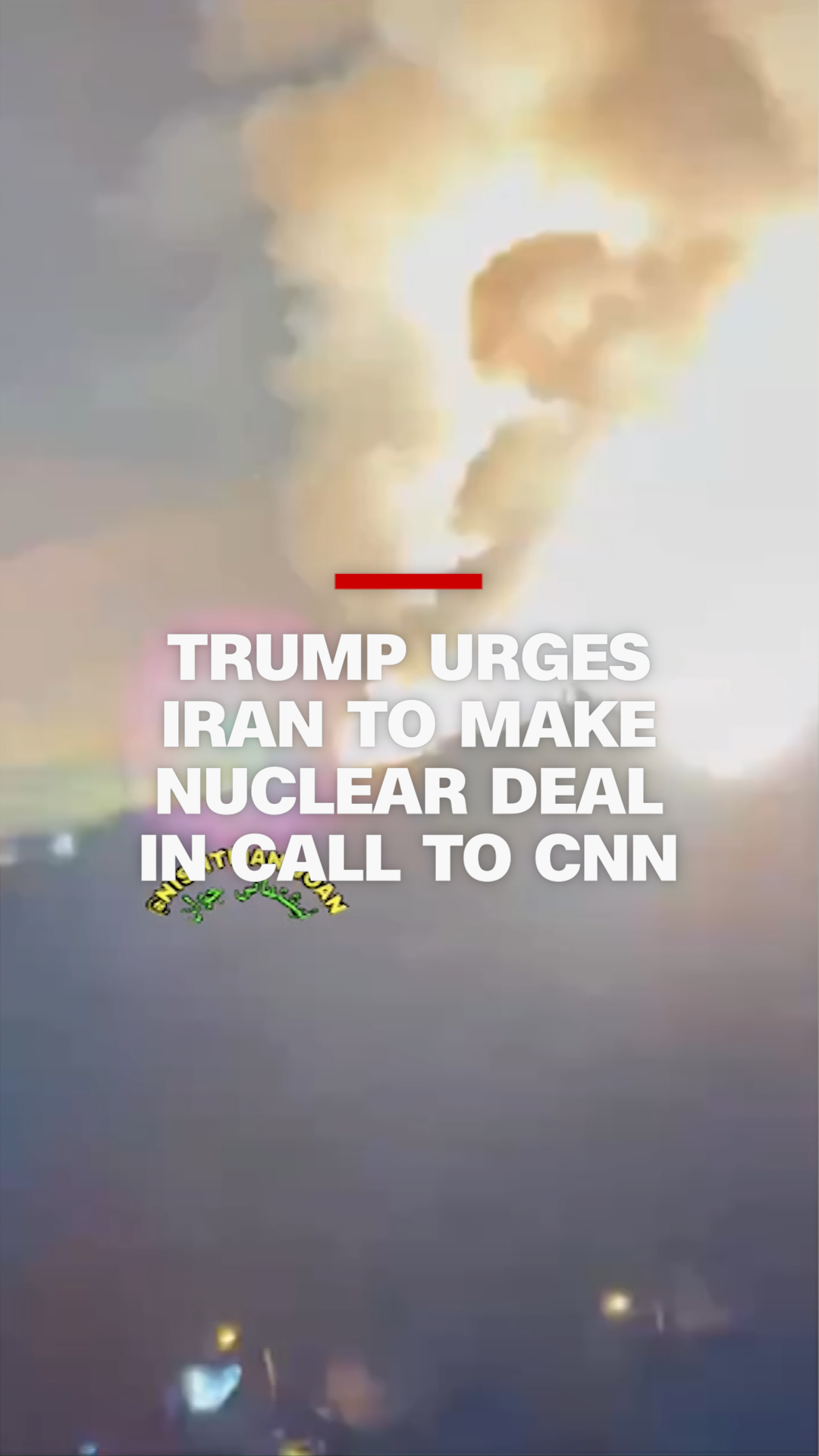Articles in this Cluster
17-06-2025
Former President Trump and Russian President Vladimir Putin held a roughly 50-minute call in which they discussed escalating Iran-Israel tensions and the Ukraine war. Putin, who initiated the call on Trump’s birthday, briefed Trump on talks with Iranian and Israeli leaders, condemned military action against Iran, warned of broader Middle East escalation, and offered Russian mediation, including potential revival of nuclear negotiations with Iran. Trump called the situation “very alarming,” noted Israel’s strike effectiveness, and said they spent less time on Ukraine but would revisit it. Both sides cited ongoing Russia-Ukraine prisoner exchanges and expressed interest in ending the conflict.
Entities: Donald Trump, Vladimir Putin, Iran-Israel tensions, Ukraine war, Russia • Tone: analytical • Sentiment: neutral • Intent: inform
17-06-2025
President Trump is weighing a U.S. military strike against Iran amid escalating Iran-Israel conflict, according to NBC News. He warned Ayatollah Ali Khamenei that the U.S. knows his location, demanded Iran’s “unconditional surrender,” and claimed U.S. control of Iran’s airspace while saying he would not target Khamenei “for now.” The U.S. is reportedly considering helping Israel strike Iran’s fortified Fordo nuclear site, and is moving additional naval assets to the region. Markets reacted with stocks falling and oil rising. Trump also rebuffed French President Macron’s suggestion of a U.S.-backed ceasefire.
Entities: Donald Trump, Iran, Israel, Ayatollah Ali Khamenei, Fordo nuclear site • Tone: urgent • Sentiment: negative • Intent: inform
17-06-2025
In a phone interview with CNN’s Dana Bash, President Donald Trump urged Iran to pursue a new nuclear deal following Israel’s unprecedented strikes on Iranian nuclear facilities and military leaders. The segment aired alongside broader coverage of escalating Israel-Iran tensions and domestic US political developments, but Trump’s central message was a public call for Tehran to negotiate.
Entities: Donald Trump, Iran, CNN, Dana Bash, Israel • Tone: analytical • Sentiment: neutral • Intent: inform
17-06-2025
Prominent U.S. evangelical leaders John Hagee, Franklin Graham, and Mike Evans urged continued strong U.S. backing for Israel amid its conflict with Iran, praising Donald Trump’s steadfast support. They framed support for Israel as a biblical mandate and moral imperative, citing Israel’s democratic values and Iran’s terror sponsorship. Hagee encouraged supporters to thank Trump and press for sustained backing, while Evans lauded Trump’s hardline yet flexible approach toward Iran. Graham emphasized prayer for Israel and highlighted the Jewish people’s historic and biblical ties to the land. All three argued U.S. policy should empower Israel to neutralize Iran’s threats.
Entities: John Hagee, Franklin Graham, Mike Evans, Donald Trump, Israel • Tone: persuasive • Sentiment: positive • Intent: persuade
17-06-2025
Israeli President Isaac Herzog told Sky News that Israel’s recent strikes on Iran were necessary because Tehran was rapidly advancing toward a nuclear weapon, both through uranium enrichment and covert weaponization. He said negotiations are futile because Iran is “lying” to Israel and its allies, and argued Israel must dismantle Iran’s nuclear program. Amid ongoing missile exchanges, Herzog acknowledged the risks and casualties but emphasized Israel’s air defenses and determination to degrade Iran’s capabilities. He also indicated the war cabinet has discussed Iran’s Supreme Leader Ayatollah Ali Khamenei, referencing reports that Donald Trump previously vetoed an Israeli plan to kill him. Iran denies seeking a nuclear weapon.
Entities: Isaac Herzog, Israel, Iran, Ayatollah Ali Khamenei, Donald Trump • Tone: analytical • Sentiment: negative • Intent: inform
17-06-2025
President Trump escalated rhetoric against Iran amid an Israel-Iran conflict, threatening Supreme Leader Ayatollah Ali Khamenei as an “easy target” while saying the U.S. has “complete and total control of the skies over Iran.” He warned of severe retaliation if U.S. troops or civilians are attacked and demanded Iran’s “unconditional surrender,” signaling little interest in negotiations. The statements blur earlier assertions that Israel acted unilaterally in striking Iranian nuclear sites. In Congress, a bipartisan effort led by Reps. Thomas Massie and Ro Khanna and Sen. Tim Kaine seeks to block unauthorized U.S. military action against Iran. The stance has divided Trump’s supporters, with figures like Tucker Carlson urging non-involvement, while Vice President Vance backs Trump’s authority to escalate if needed to stop Iranian enrichment.
Entities: Donald Trump, Ayatollah Ali Khamenei, Iran, Israel, U.S. military • Tone: urgent • Sentiment: negative • Intent: inform
17-06-2025
At the G7 summit in Canada, President Trump prioritized defending Vladimir Putin and argued Russia should be readmitted to the group, claiming its inclusion could have prevented the war in Ukraine. He blamed past leaders for Russia’s 2014 expulsion, misstating details, and highlighted his personal rapport with Putin, saying the Russian leader speaks to him more than others. Trump’s stance deepened rifts with allies who are pushing new sanctions on Russia, while he downplayed additional U.S. sanctions and signaled reduced U.S. commitment to Ukraine. Critics, including former adviser John Bolton, said Trump misunderstands the G7’s purpose as an alliance of democracies and that his position risks isolating the U.S. within the bloc. Trump left the summit early to address the Israel-Iran conflict.
Entities: Donald Trump, Vladimir Putin, G7 summit, Russia, Ukraine • Tone: analytical • Sentiment: negative • Intent: inform
17-06-2025
Russia, despite deepening ties with Iran and past military cooperation, is staying on the sidelines as Israel conducts sweeping attacks on Iranian nuclear, energy, and military targets. Analysts say Moscow’s calculus prioritizes its war in Ukraine, avoidance of confrontation with Israel and the U.S., and preservation of relations with Gulf partners like the UAE and Saudi Arabia. Putin also opposes an Iranian nuclear weapon and is leveraging the crisis to present Russia as a mediator, engaging with both Iran and Israel and signaling openness to facilitate nuclear talks—potentially to improve ties with Washington—while avoiding significant military aid to Tehran. This restraint, compounded by Russia’s resource constraints and regional balancing, risks weakening Moscow’s influence in the Middle East and straining its relationship with Iran. Meanwhile, rising oil prices benefit Russia economically.
Entities: Russia, Iran, Israel, Vladimir Putin, United States • Tone: analytical • Sentiment: neutral • Intent: analyze
